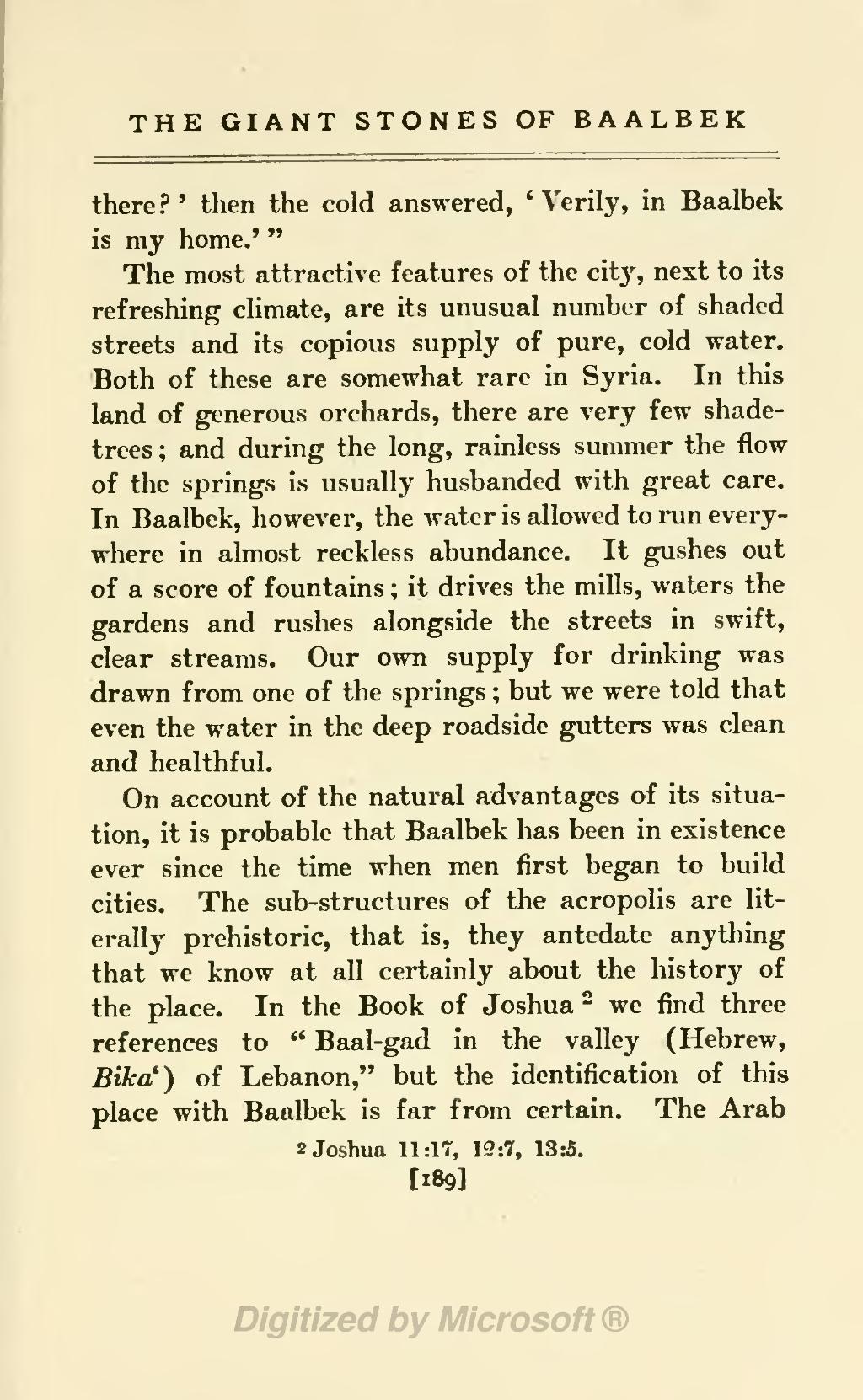THE GIANT STONES OF BAALBEK
there?' then the cold answered, 'Verily, in Baalbek is my home.'"
The most attractive features of the city, next to its refreshing climate, are its unusual number of shaded streets and its copious supply of pure, cold water. Both of these are somewhat rare in Syria. In this land of generous orchards, there are very few shade-trees; and during the long, rainless summer the flow of the springs is usually husbanded with great care. In Baalbek, however, the water is allowed to run everywhere in almost reckless abundance. It gushes out of a score of fountains; it drives the mills, waters the gardens and rushes alongside the streets in swift, clear streams. Our own supply for drinking was drawn from one of the springs; but we were told that even the water in the deep roadside gutters was clean and healthful.
On account of the natural advantages of its situation, it is probable that Baalbek has been in existence ever since the time when men first began to build cities. The sub-structures of the acropolis are literally prehistoric, that is, they antedate anything that we know at all certainly about the history of the place. In the Book of Joshua[1] we find three references to "Baal-gad in the valley (Hebrew, Bika') of Lebanon," but the identification of this place with Baalbek is far from certain. The Arab
- ↑ Joshua 11:17, 12:7, 13:5.
[ 189 ]
